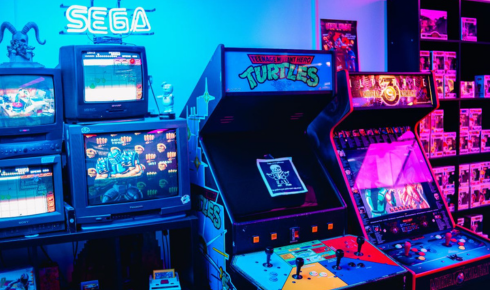How Video Games Are Shaping Global Culture

Video games are more than just entertainment—they’re becoming a global language. From Tokyo to Toronto, Lagos to London, gaming has embedded itself into daily life, influencing fashion, music, storytelling, education, and even politics. The cultural impact of gaming is no longer confined to the screen—it’s now a global phenomenon.
The Rise of Game-Inspired Fashion and Music
It’s not uncommon to see people wearing clothing featuring designs from Street Fighter, Zelda, or Fortnite. In fact, entire fashion lines now collaborate with game developers—Nike and League of Legends, Balenciaga and Fortnite, and UNIQLO with Animal Crossing.
Likewise, soundtracks from games like Skyrim, The Last of Us, and Nier: Automata are now performed by full orchestras in world tours. DJs sample game sounds. Lo-fi YouTube mixes loop cozy RPG tunes. Gaming music has seeped into everything from study playlists to rave sets.
Language, Memes, and the Global Gamer Dialect
Gamers share a common slang: “GG,” “nerf,” “grind,” “meta,” “camping,” and more. These terms transcend geography. A teenager in Brazil and a streamer in South Korea can communicate through gameplay with only a few words.
Game-related memes also spread globally at lightning speed. From Among Us “sus” memes to speedrun jokes, the humor of gaming culture now shapes how young people talk online, often even outside gaming contexts.
Political Movements in Digital Worlds
Games have even become stages for real-world expression. In 2020, Animal Crossing islands were used to protest, organize, and communicate political messages. Virtual spaces are becoming safe zones for free speech, creativity, and global solidarity.
While not every game has this layer, the idea of using play as a tool for expression is becoming more accepted—even in platforms designed primarily for entertainment.
In unexpected corners of the internet, spaces like bumi22 login also reflect this blend of global accessibility and digital interaction. While focused on gameplay, these platforms cater to a cross-cultural audience drawn to interactive formats that combine strategy, chance, and connection.
Educational and Cross-Cultural Bridges
Language-learning games, history-based simulations, and puzzle games used in schools show how educational institutions now recognize the value of interactive learning. Titles like Assassin’s Creed: Discovery Tour are used to explore ancient Egypt, while Minecraft: Education Edition lets students collaboratively build historical landmarks.
Players also naturally absorb culture from the games themselves—learning about Japanese folklore in Okami, Norse mythology in God of War, or American frontier life in Red Dead Redemption 2.
Final Reflection: A Cultural Powerhouse
What started as a niche hobby in dimly lit arcades is now a multi-billion-dollar cultural ecosystem influencing nearly every aspect of modern life. Gaming doesn’t just reflect culture—it creates it. Whether you’re customizing a character, watching esports, sharing memes, or even simply logging into your favorite gaming platform, you’re participating in a cultural movement with global reach.
